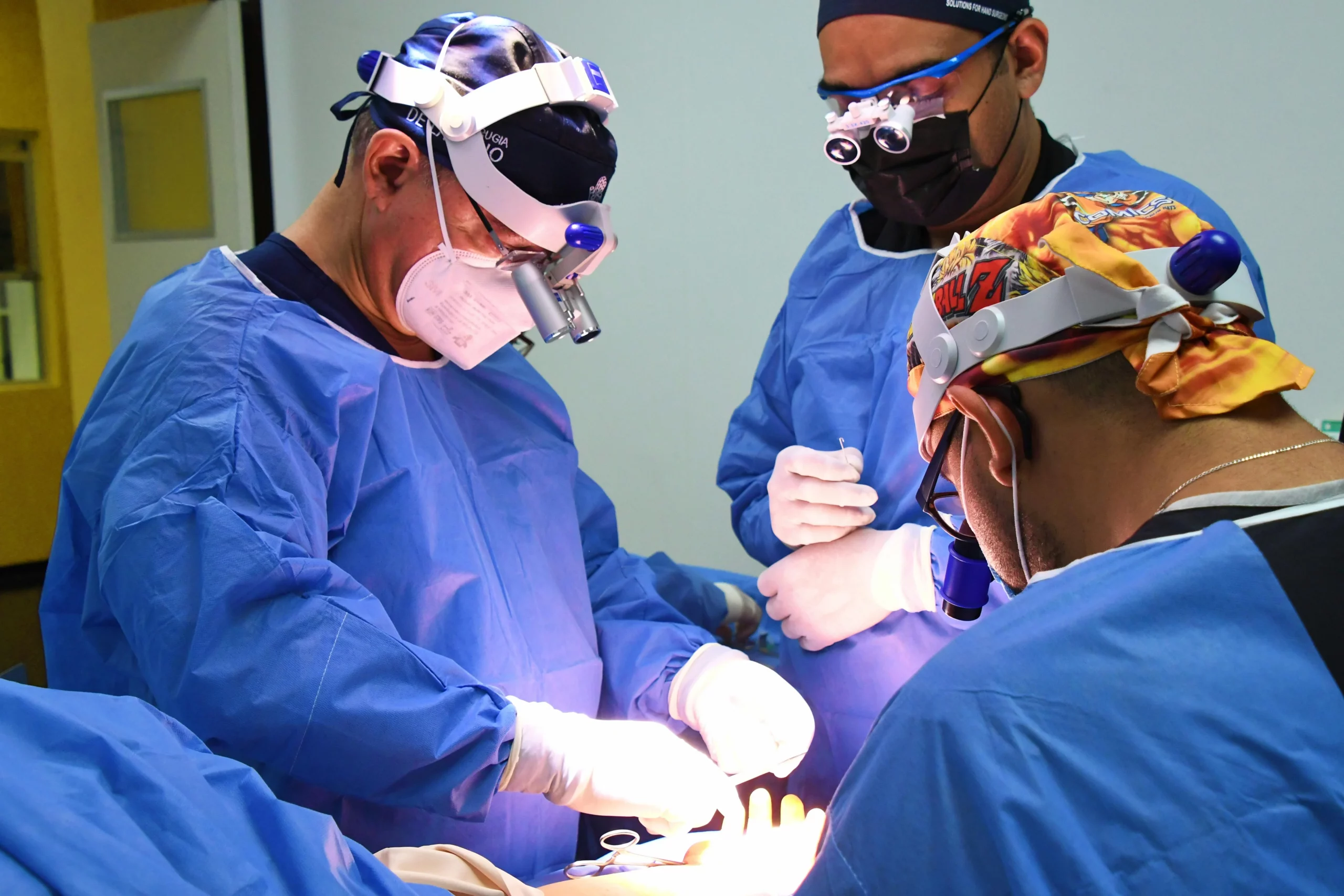What is a Surgical Technician?
A surgical technician, also known as a surgical technologist or operating room technician, is a highly trained allied healthcare professional responsible for preparing operating rooms, sterilizing equipment, and assisting surgeons and nurses during surgical procedures. Surgical technicians play a critical role in maintaining sterile conditions, organizing surgical instruments, and anticipating surgeons’ needs to facilitate smooth and successful surgical interventions.
Surgical Technician Job Description
We are currently seeking dedicated and skilled surgical technicians to join our esteemed surgical team. As integral members of our healthcare facility, successful candidates will play a vital role in assisting surgeons and other healthcare professionals during surgical procedures, ensuring safe and efficient patient care in the operating room (OR) setting.
As a surgical technician, you will have the opportunity to work alongside skilled surgeons and healthcare professionals, providing essential support and contributing to positive patient outcomes in a fast-paced and dynamic surgical environment.
The ideal candidates will possess strong technical skills, attention to detail, and the ability to thrive under pressure to deliver high-quality surgical care to patients.
What Does a Surgical Technician Do?
- Prepare Operating Rooms: Set up and prepare operating rooms for surgical procedures, ensuring cleanliness, functionality, and availability of surgical instruments, equipment, and supplies according to established protocols and surgical schedules to facilitate efficient and safe surgical interventions.
- Sterilize and organize surgical instruments, equipment, and supplies using autoclaves, sterile techniques, and instrument trays, following infection control guidelines and regulatory standards to maintain sterile conditions and prevent surgical site infections (SSIs).
- Assist Surgical Team: Assist surgeons, nurses, and other healthcare professionals during surgical procedures by passing instruments, suturing wounds, and providing other sterile and non-sterile support as needed, anticipating surgeons’ needs and maintaining sterile fields to ensure optimal surgical outcomes and patient safety.
- Monitor patients’ vital signs, observe sterile techniques, and assist with patient positioning and draping during surgical procedures, communicating effectively with surgical team members and adhering to surgical protocols and safety guidelines to prevent complications and ensure patient comfort and well-being.
- Provide Postoperative Support: Assist with patient transfer and transport to post-anesthesia care units (PACUs) or surgical recovery areas, monitoring patients’ postoperative status, assessing their pain levels, and providing emotional support and reassurance to promote patient recovery and comfort.
- Clean and restock operating rooms, surgical instruments, and equipment after surgical procedures, disposing of biomedical waste, and documenting procedure-related information accurately and comprehensively to ensure compliance with regulatory standards and facilitate smooth transitions between surgical cases.
How Much Do Surgical Technicians Make?
The average salary for Surgical Technicians in the United States is $51,900. However, salary ranges usually span between $46,700 and $57,400, with variations influenced by factors such as education, certifications, additional skills, and years of experience in the field.
Skill Requirements
- Technical Proficiency: Surgical technicians must possess strong technical skills and proficiency in preparing operating rooms, sterilizing surgical instruments, and assisting surgeons during surgical procedures to ensure safe, efficient, and high-quality patient care in the operating room (OR) setting.
- Attention to Detail: Surgical technicians should demonstrate meticulous attention to detail in organizing surgical instruments, maintaining sterile fields, and adhering to surgical protocols and safety guidelines to prevent surgical errors, minimize infection risks, and optimize surgical outcomes for patients.
- Teamwork and Collaboration: Effective teamwork and collaboration skills are essential for surgical technicians to work closely with surgeons, nurses, anesthesiologists, and other healthcare professionals, fostering interdisciplinary communication, coordination, and cooperation to promote surgical efficiency and patient safety.
- Adaptability and Flexibility: Surgical technicians should exhibit adaptability, flexibility, and resilience in responding to dynamic surgical situations, changing patient needs, and unexpected challenges during surgical procedures, remaining calm under pressure and adapting quickly to evolving circumstances to ensure optimal patient care delivery.
- Professionalism and Ethics: Surgical technicians should uphold professional standards of practice, ethical principles, and regulatory requirements in surgical care, including patient confidentiality, respect for patient autonomy, and adherence to professional codes of conduct, to maintain trust, integrity, and ethical conduct in healthcare interactions and decision-making.
- Continuous Learning and Professional Development: Surgical technicians are encouraged to engage in ongoing learning, continuing education, and professional development activities to enhance technical skills, expand knowledge of surgical procedures, and stay current with advances in surgical technology, patient care, and perioperative practices.
Example KPIs for a Surgical Technician
- Surgical Procedure Efficiency: This KPI measures surgical technicians’ efficiency in preparing operating rooms, organizing surgical instruments, and assisting surgeons during surgical procedures, contributing to streamlined surgical workflows, reduced procedure times, and improved surgical outcomes.
- Surgical Site Safety and Infection Control: This KPI evaluates surgical technicians’ adherence to infection control protocols, sterile techniques, and surgical safety standards to prevent surgical site infections (SSIs), minimize contamination risks, and ensure a safe and sterile surgical environment for patients and healthcare providers.
- Team Communication and Collaboration: This KPI assesses surgical technicians’ communication skills, teamwork abilities, and collaboration with surgical team members, including surgeons, nurses, and anesthesia providers, to facilitate effective information exchange, task delegation, and patient care coordination in the operating room (OR) setting.
- Patient Satisfaction and Comfort: This KPI measures surgical technicians’ effectiveness in promoting patient satisfaction, comfort, and well-being during surgical procedures by providing compassionate support, clear communication, and responsive assistance to patients and their families, enhancing the overall patient experience and perception of surgical care quality.
- Continuous Learning and Professional Development: This KPI evaluates surgical technicians’ engagement in ongoing learning, continuing education, and professional development activities to enhance technical skills, expand knowledge of surgical practices, and stay abreast of regulatory updates and best practices in surgical care delivery.
How Can Glider AI Help You with Hiring a Surgical Technician?
Glider’s recruitment platform is designed to prioritize competency over credentials, enabling organizations to assess candidates’ skills objectively and efficiently. Utilize Glider AI Skill Intelligence™ to streamline the hiring process, identify top-quality Surgical Technician candidates, and ensure a mobile-first, candidate-friendly experience.
Glider AI’s Unique Features
- Verify Medical Licenses
- Validate Hundreds of Medical, Clinical, and Technical Skills
- Ensure Hiring Compliance
- Conversational Chatbot for Talent Screening
- Powerful candidate analytics
- Streamline Healthcare Hiring with AI and Automation
Go ahead and spotlight your Surgical Technician with Glider AI today!
Schedule a Demo or contact us at info@glider.ai




